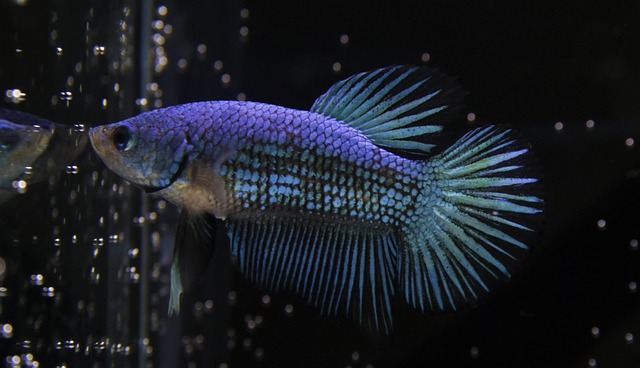Table of Contents
Are you considering keeping a Betta fish but wondering how long they can live without a filter? Filtration is a crucial aspect of maintaining a healthy aquatic environment for your fish, but sometimes circumstances may prevent you from using a filter.
In this article, we will explore the question of how long a Betta fish can live without a filter, including the factors that affect their survival.
We’ll also discuss the importance of providing proper care and maintenance for your Betta fish, including water changes and other methods of filtration.
Whether you’re a seasoned aquarist or a beginner, read on to discover how to ensure the health and longevity of your Betta fish.
Although it is not advisable to keep a Betta fish without a filter, they can survive for a short period under such circumstances. These tough creatures can endure suboptimal conditions for a brief duration. However, it is important to note that the longer a betta fish goes without a filter, the greater the risk to their health and well-being.
What is a Betta Fish?
Native to Southeast Asia, Betta fish, commonly referred to as Siamese fighting fish, are a well-liked species of freshwater fish kept as pets in small aquariums or fish bowls, owing to their striking colors and low-maintenance needs.
Betta fish are known for their long, flowing fins and tails, which come in a variety of colors and patterns. Male bettas are especially prized for their bright colors and aggressive behavior, which makes them popular in the aquarium trade.
In the wild, betta fish are found in shallow, slow-moving waters such as rice paddies, canals, and floodplains. They are carnivorous and feed on insects, larvae, and small crustaceans.
When kept as pets, betta fish require a well-maintained aquarium or fish bowl with clean water, appropriate water temperature, and proper filtration. They are also sensitive to water quality and can become stressed or sick if their living conditions are not optimal.
Overall, betta fish are a fascinating and beautiful species of fish that can make great pets when cared for properly.
The Importance of a Filter
Aquarium enthusiasts often choose Betta fish, also recognized as Siamese fighting fish, as a favored option.However, keeping a betta fish healthy and happy requires proper care, including maintaining a clean and stable environment. One of the essential pieces of equipment for a betta fish tank is a filter.
A filter helps to keep the water in the tank clean by removing harmful substances such as ammonia, nitrites, and nitrates, which can build up quickly in an enclosed environment.
These substances can cause stress and illness to the fish, leading to a shortened lifespan. A filter also helps to maintain a stable water temperature and oxygen levels, which are crucial for the well-being of the fish.
Without a filter, a betta fish can survive for a short period, but it is not recommended. The fish will be more susceptible to stress and disease, and the water quality will deteriorate rapidly.
In a tank without a filter, the waste produced by the fish will accumulate, leading to high levels of ammonia, nitrites, and nitrates. These substances are toxic to fish and can cause serious health problems.
It is essential to choose the right filter for a betta fish tank. A filter that is too powerful can create strong currents that can stress the fish.
On the other hand, a filter that is too weak may not be able to keep up with the waste produced by the fish. It is recommended to choose a filter that is specifically designed for a betta fish tank and provides a gentle flow of water.
In conclusion, a filter is an essential piece of equipment for a betta fish tank. It helps to keep the water clean and stable, which is crucial for the health and well-being of the fish.
Without a filter, a betta fish will be more susceptible to stress and disease, leading to a shortened lifespan. It is important to choose the right filter for a betta fish tank to ensure that the fish is happy and healthy.
How Long Can a Betta Fish Live Without a Filter?
Betta fish, also known as Siamese fighting fish, are popular pets because of their vibrant colors and unique personalities.
However, many people wonder how long a betta fish can live without a filter. While it is possible for a betta fish to survive without a filter, it is not recommended for their long-term health and well-being.
Without a filter, a betta fish tank can quickly become dirty and polluted. Waste and uneaten food can accumulate, leading to high levels of ammonia and nitrite in the water. These toxins can be harmful to betta fish, causing stress, illness, and even death.
Several factors, such as the tank size, the number of fish, and the feeding amount, affect the duration for which a Betta fish can survive without a filter.
In general, a betta fish can survive for a few days to a week without a filter, but this is not a sustainable or healthy situation for them.
To ensure the long-term health and happiness of a betta fish, it is recommended to provide a properly sized tank with a filter.
A filter helps to maintain a healthy and stable environment by removing waste and toxins from the water. It also promotes beneficial bacteria growth, which helps to break down harmful substances.
In addition to a filter, betta fish also require regular water changes, proper nutrition, and a suitable environment with hiding places and appropriate water temperature.
By providing a betta fish with a healthy and stimulating environment, they can live for several years and bring joy to their owners.
Signs of Stress in Betta Fish
While Betta fish are favored as aquarium pets for their stunning colors and low-maintenance, they are delicate creatures that demand specific care to flourish.
One of the most important factors in keeping a betta fish healthy is maintaining the quality of the water in its tank. When the water quality drops, betta fish can become stressed, leading to a range of health problems.
Here are some common signs of stress in betta fish:
- Lethargy: When betta fish become stressed, they may become less active and spend more time resting at the bottom of the tank.
- Loss of appetite: Stress can also cause betta fish to lose their appetite, which can lead to malnourishment and other health issues.
- Faded colors: Betta fish are known for their bright, vibrant colors. If your betta fish’s colors are fading, it may be a sign of stress.
- Clamped fins: Betta fish have long, flowing fins that they use to swim. When they are stressed, they may clamp their fins close to their body.
- Gasping for air: Betta fish breathe through their gills, and when they are stressed, they may gasp for air at the surface of the water.
These are just a few of the signs that your betta fish may be experiencing stress. If you notice any of these symptoms, it is important to take action to improve the water quality in the tank. One way to do this is by adding a filter to the tank.
A filter can help remove harmful toxins from the water and keep the tank clean. However, it is important to choose the right type of filter for your betta fish.
Some filters can create too much water flow, which can stress out betta fish. It is important to choose a filter that is specifically designed for betta fish and that provides gentle, consistent water flow.
In addition to adding a filter, there are other steps you can take to reduce stress in your betta fish. These include:
- Regular water changes: Betta fish require clean water to thrive. Regular water changes can help keep the water quality high and reduce stress.
- Proper feeding: Betta fish require a balanced diet to stay healthy. Overfeeding can lead to water quality issues and stress.
- Appropriate tank size: Betta fish require at least a 5-gallon tank to thrive. A tank that is too small can lead to stress and health problems.
By monitoring your betta fish for signs of stress and taking steps to improve their environment, you can help ensure that they live a long and healthy life.
How to Keep Your Betta Fish Healthy Without a Filter
Betta fish are beautiful and easy to care for, but they do require some basic care to stay healthy. One of the most important aspects of betta fish care is keeping their water clean. While a filter can help with this, it is possible to keep your betta fish healthy without one.
Water Changes
Without a filter, it is important to change your betta fish’s water regularly to keep it clean. A good rule of thumb is to change 25% of the water every week. This will help remove any waste or debris that has built up in the tank.
Live Plants
Live plants can help keep your betta fish’s water clean by absorbing waste and producing oxygen. They also provide a natural habitat for your fish to explore. Some good options for betta fish tanks include java fern, anubias, and marimo moss balls.
Avoid Overfeeding
Overfeeding can lead to excess waste in your betta fish’s tank, which can quickly become a problem without a filter. Feed your betta fish only what they can eat in a few minutes, and remove any uneaten food from the tank.
Water Conditioner
Using a water conditioner can help remove any harmful chemicals from your betta fish’s water, such as chlorine and chloramine. This can help keep your fish healthy and prevent any water quality issues.
Overall, while a filter can help keep your betta fish’s water clean, it is possible to keep your fish healthy without one.
By performing regular water changes, adding live plants, avoiding overfeeding, and using a water conditioner, you can help ensure that your betta fish stays happy and healthy.
Conclusion
In conclusion, a Betta fish can live without a filter for a limited period of time. However, it is not recommended to keep them in such conditions for an extended period.
Betta fish are sensitive to changes in water quality and without a filter, the water quality can deteriorate quickly, leading to health problems.
Several factors, including the tank size, the number of fish in the tank, and the feeding schedule, determine how long a Betta fish can survive without a filter.
Generally, it is recommended to change the water in a Betta fish tank at least once a week, even with a filter. Without a filter, it is advisable to change the water more frequently, ideally every two to three days.
It is also important to note that a Betta fish tank without a filter will require more maintenance than a tank with a filter.
The owner will need to monitor the water quality regularly, remove any uneaten food, and clean the tank more frequently.
Overall, while a Betta fish can survive without a filter for a limited period, it is not recommended for their long-term health and well-being.
It is important to provide them with a suitable environment that includes a filter to maintain water quality and ensure their longevity.







